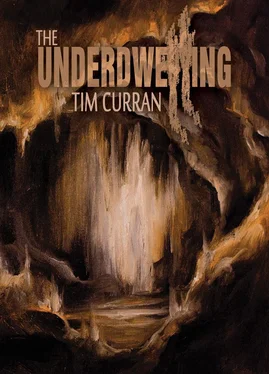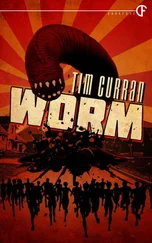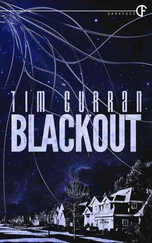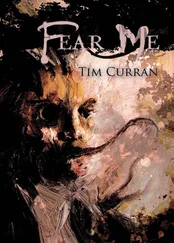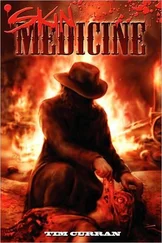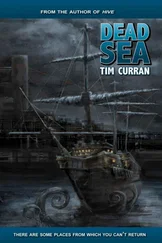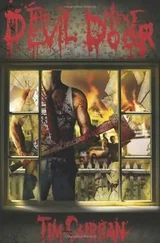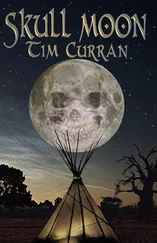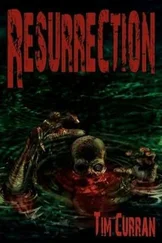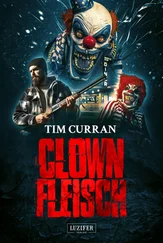Tim Curran - The underdwelling
Здесь есть возможность читать онлайн «Tim Curran - The underdwelling» весь текст электронной книги совершенно бесплатно (целиком полную версию без сокращений). В некоторых случаях можно слушать аудио, скачать через торрент в формате fb2 и присутствует краткое содержание. Жанр: Ужасы и Мистика, на английском языке. Описание произведения, (предисловие) а так же отзывы посетителей доступны на портале библиотеки ЛибКат.
- Название:The underdwelling
- Автор:
- Жанр:
- Год:неизвестен
- ISBN:нет данных
- Рейтинг книги:3 / 5. Голосов: 1
-
Избранное:Добавить в избранное
- Отзывы:
-
Ваша оценка:
- 60
- 1
- 2
- 3
- 4
- 5
The underdwelling: краткое содержание, описание и аннотация
Предлагаем к чтению аннотацию, описание, краткое содержание или предисловие (зависит от того, что написал сам автор книги «The underdwelling»). Если вы не нашли необходимую информацию о книге — напишите в комментариях, мы постараемся отыскать её.
The underdwelling — читать онлайн бесплатно полную книгу (весь текст) целиком
Ниже представлен текст книги, разбитый по страницам. Система сохранения места последней прочитанной страницы, позволяет с удобством читать онлайн бесплатно книгу «The underdwelling», без необходимости каждый раз заново искать на чём Вы остановились. Поставьте закладку, и сможете в любой момент перейти на страницу, на которой закончили чтение.
Интервал:
Закладка:
“Gentlemen,” McNair said, “we are about to step into the history books.”
Maki just stood there with his mouth hanging open as the flashlights scanned about, their beams thick with suspended dust and droplets of moisture. He swallowed, licking his lips. “Did somebody dig this out?” he said.
“No, no, this is a natural cavern,” McNair was quick to point out before imaginations started running wild. “All of what we’ve seen so far has been channeled out of the limestone by ancient floodwaters. This cavern, too. It’s really incredible.”
“But that shaft I almost fell down…it was so smooth and round.”
“That could have been volcanic rock laid down by a lava flow,” Jurgens pointed out. “Lava can form shapes that look man-made if it rapidly cools.”
McNair nodded. “Exactly. It’ll take years and years of study, gentlemen, to answer all this. For now, just enjoy.”
Thing was, all this might have gotten a paleobiologist excited, but Boyd and the others had mixed emotions. Something this big and this old, well, it inspired a certain superstitious dread that made their mouths go dry. They were almost afraid of it and, at the same time, desperately curious.
“What’re you thinking?” Boyd said to Breed.
The dazed look in his eyes finally faded. He laughed. “I was thinking of those comic books I read when I was a kid. Those guys in there were always finding places like this and they were always full of dinosaurs and shit.”
It was McNair’s turn to laugh. “I don’t think we’ll find any dinosaurs.”
“Good,” Breed said. “Because I left my rifle in the truck.”
They all got a little chuckle out of that.
The floor of the cavern was about twenty feet down from the opening of the stope. But it was a gradual incline littered with rocks and boulders and there was no trouble climbing down. Jurgens and McNair went first. Boyd and Breed followed. But Maki just waited above.
They put their lights on him.
“C’mon, peaches,” Breed said. “I’ll hold your hand.”
But Maki was not moving.
“You don’t have to come with us, Maki,” Jurgens said. “All of this, it’s above and beyond. I can’t even say how safe it is.”
“I’ll stay with you if you want,” Boyd told him.
That got Maki down. He was looking pale and his lower lip kept jumping with a tic. He was scared and nobody made fun of that, not even Breed. Maybe they were all feeling what Boyd had been feeling all night: the sense of impending doom. Like a can of something crawly had been opened up in their guts.
The floor was irregular, sometimes smooth and flat, other times hilly with mounds of rocks and jutting spokes of limestone. There were pools of water and lots of cracks that led down far below. Jurgens and McNair were having themselves a good old time, theorizing about the age of the cavern and the waters that must have cut it out, chipping off rock specimens and prodding at fossils…of which, there were many. Outcroppings of them everywhere: corals and brachiopods and crinoids.
“This is definitely late Permian,” McNair said as he took photographs of the fossiliferous rock. “The index fossils are fairly conclusive. My God, look at these specimens. Trilobites and mollusks and ammonites. Enough to fill a dozen specimen cases.”
“Sure, great scientific stuff,” Jurgens said. “But my bosses won’t be thrilled. I can tell you that much. If we have to divert those drifts, it’ll cost thousands, hundreds of thousands.”
“They’ll live,” Boyd said to him. “Besides, I bet museums will pay plenty for the stuff down here. Christ, people’ll want to tour this. This will be a cash cow for Hobart. They’ll rake it in.”
“Yeah, he’s right,” Breed said.
Jurgens and McNair kept taking samples, discussing matters geological and paleontological, taking pictures. Boyd and the others wanted to explore, to see what was ahead. But it was hard to get them to move on. They wanted to study what they were finding. Finally, Breed and Maki moved off. Boyd went with them.
“Hey, we got bones over here,” Breed called.
That got them moving.
Jurgens and McNair came right over, holding their lanterns out. There were bones. Hundreds of them, maybe thousands. Some were protruding from the floor and others thrusting out from shelves of rock. All of them were fossilized, of course.
“Amazing,” McNair said, photographing them. “Absolutely amazing.” He held his lantern over the fossil imprint of a fish that was sinuous and eel-like. “Ancanthodian. Last remaining forms died out in the Permian Extinction event.” He looked around at the fossiliferous deposits. “Permian fishes…reptiles…amphibians. All heaped together like this. It’s unusual. I suppose the waters must have brought them together.”
“What’s unusual about it?” Boyd asked.
“Well, some of these are land forms and others are marine animals. It’s hard to imagine what could have scattered them all into the same basin. I suppose it could have been a streambed. Animals have a habit of dying around streams and in the shallows. The water might have washed them here.”
Boyd just looked at all those knobs of bone and things like the slats of ribcages, jaws, and skulls, and you name it. The bones of animals from land and from the sea all tossed into this basin like McNair said. No, it didn’t make sense. Not even to a guy like him. If there were a pile of bones like this in the modern world, he would have thought somebody collected them up and put them there. Or dumped them there.
Sure, he thought, like the litter pile of bones outside the cave of a beast. When it was done eating, it just tossed them in a litter pile.
But he didn’t say that. It was probably unscientific as all hell. McNair, no doubt, would have a better explanation and who was he to argue with the man? How it looked to him and how it probably was were two different things. Boyd figured that was probably true.
“Lookit this one,” Maki said. “A freaking crocodile, eh?”
McNair and Jurgens came over, looking at what appeared to be the near-complete fossil skeleton of a reptile maybe twenty feet in length.
“Good God,” McNair said, down on his hands and knees next to it. “This is a therapsid. And a big one, too.”
“What’s that?” Maki said.
“Therapsids were reptiles that mammals eventually developed from. Some were vegetarians and some were carnivores.” He examined the skull, the teeth jutting from it. “Look at these canines and incisors, this one was a carnivore.”
There were more bones scattered about. Lots of them. McNair identified some belonging to fish and others from therapsids, some quite large and others from smaller rodent-like forms. He went on and on in dusty detail about life in the late Permian and the massive extinction that wiped most of it out.
“This area must be part of some ancient headland,” he said. “Where the sea met the land. Incredible. We’re probably standing on a beach from the Upper Permian.”
Breed got bored and wandered off by himself. He disappeared over a rise and they could see his light bobbing about.
“Hey!” he called out. “There’s pillars over here.”
That got everyone scrambling to take a look.
They all arrived about the same time and saw an uneven expanse of ground stretching away as far as their lights would reach. It was set with low mounds and sloping hills. And everywhere…pillars. Not just two or three, but hundreds stretching away in all directions. Some were narrow like pipes and others had very wide bases that gradually tapered as they moved up and up, many right into the living rock far above. They were set in stands, crowded together so tightly you would have had to turn sideways to get between them, while others occupied low hillocks above.
Читать дальшеИнтервал:
Закладка:
Похожие книги на «The underdwelling»
Представляем Вашему вниманию похожие книги на «The underdwelling» списком для выбора. Мы отобрали схожую по названию и смыслу литературу в надежде предоставить читателям больше вариантов отыскать новые, интересные, ещё непрочитанные произведения.
Обсуждение, отзывы о книге «The underdwelling» и просто собственные мнения читателей. Оставьте ваши комментарии, напишите, что Вы думаете о произведении, его смысле или главных героях. Укажите что конкретно понравилось, а что нет, и почему Вы так считаете.
